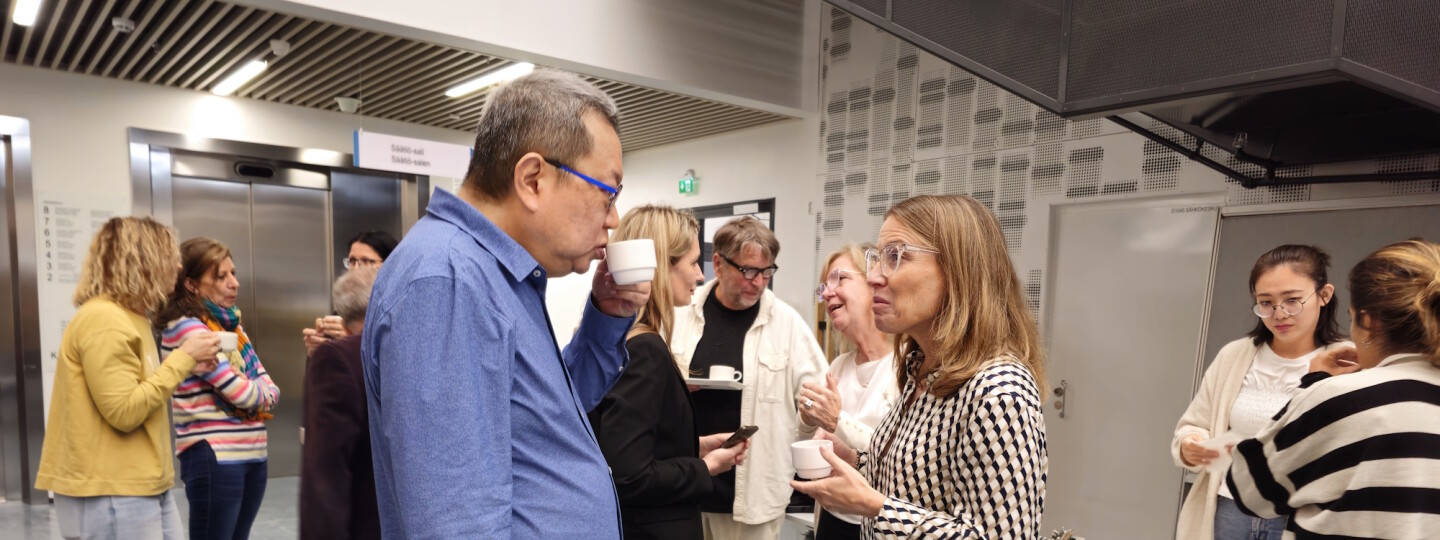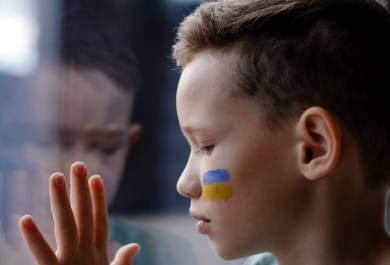The mental health of children and adolescent is a current topic around the world, especially now, when the well-being of young people is burdened by many crises. With the pandemic, suicides among young people have been on the rise worldwide. According to researchers, climate change and the loss of biodiversity are also significant threats to public health.
The seminar ”Global perspectives on child and adolescent mental health in times of crises” organized by the Research Centre for Child Psychiatry and the Research Flagship Centre INVEST consisted of nine lectures given by researchers from Finland, Ukraine, Kenya, the Philippines, Argentina, Israel, Greece and Singapore.
The topics dealt with the mental health situation of young people in different countries and the various societal crises that affect young people's well-being and future prospects.
Most of the speakers at the seminar belong to Global Child and Adolescent Mental Health (GCAMHS) research group coordinated by the the Research Centre for Child Psychiatry. The research group covers 31 countries in Europe, Asia, Africa and South America. The group's goal is to gather information on mental health problems in different countries and, above all, how the environment and societal threats, such as pandemics, wars, economic crises and climate change, affect the well-being of young people. The study will cover nearly 100,000 participants.
Adolescent suicidality is on the rise
The first lectures of the seminar dealt with adolescent suicidality and ways to prevent suicide among young people.
Professor Anat Brunstein-Klomek (Baruch Ivcher School of Psychology) discussed safety plans aimed at preventing suicides among young people and the virtual reality training offered to healthcare workers developed by Brunstein-Klomek's group. In her speech, Brunstein-Klomek reminded that the number of suicides among young people has increased due to the pandemic.
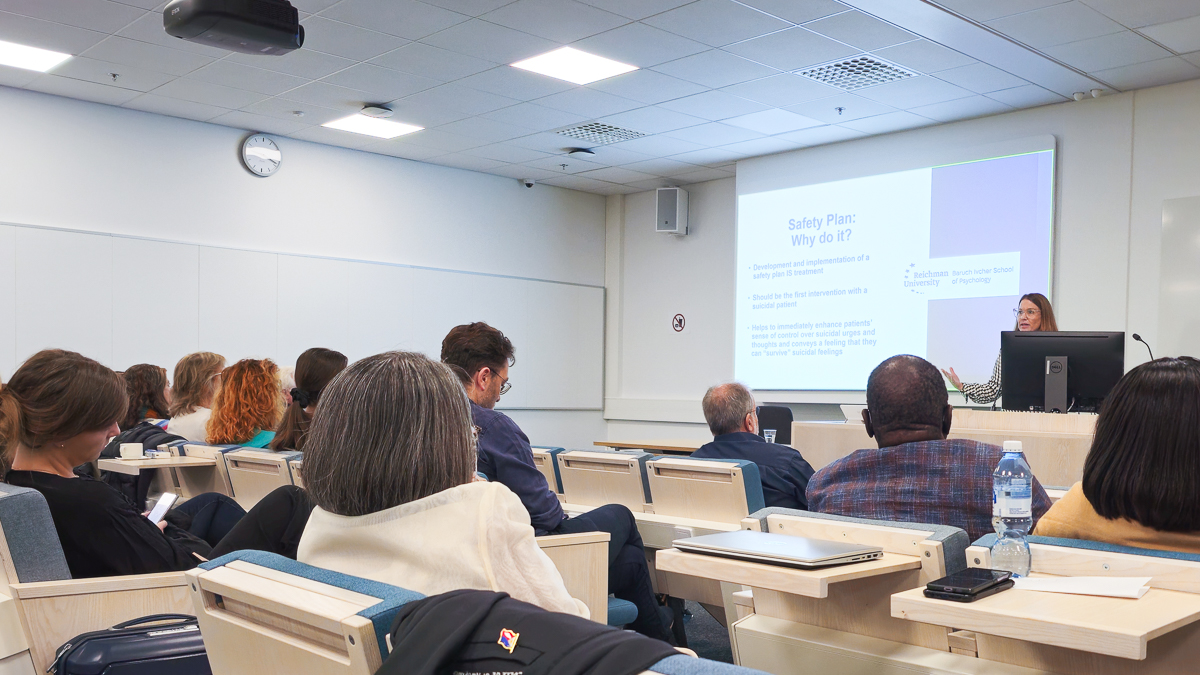 – The more we train professionals in suicide prevention, the more willing they are to treat and young people will receive better treatment from them, Brunstein-Klomek said at the seminar.
– The more we train professionals in suicide prevention, the more willing they are to treat and young people will receive better treatment from them, Brunstein-Klomek said at the seminar.
In Africa the number of adolescent suicides has also increased in recent years. Professor David Ndetei (University of Nairobi) spoke at the seminar about the mental health situation in Kenya, the increased suicides among young people and the ways in which the country has tried to solve the problem.
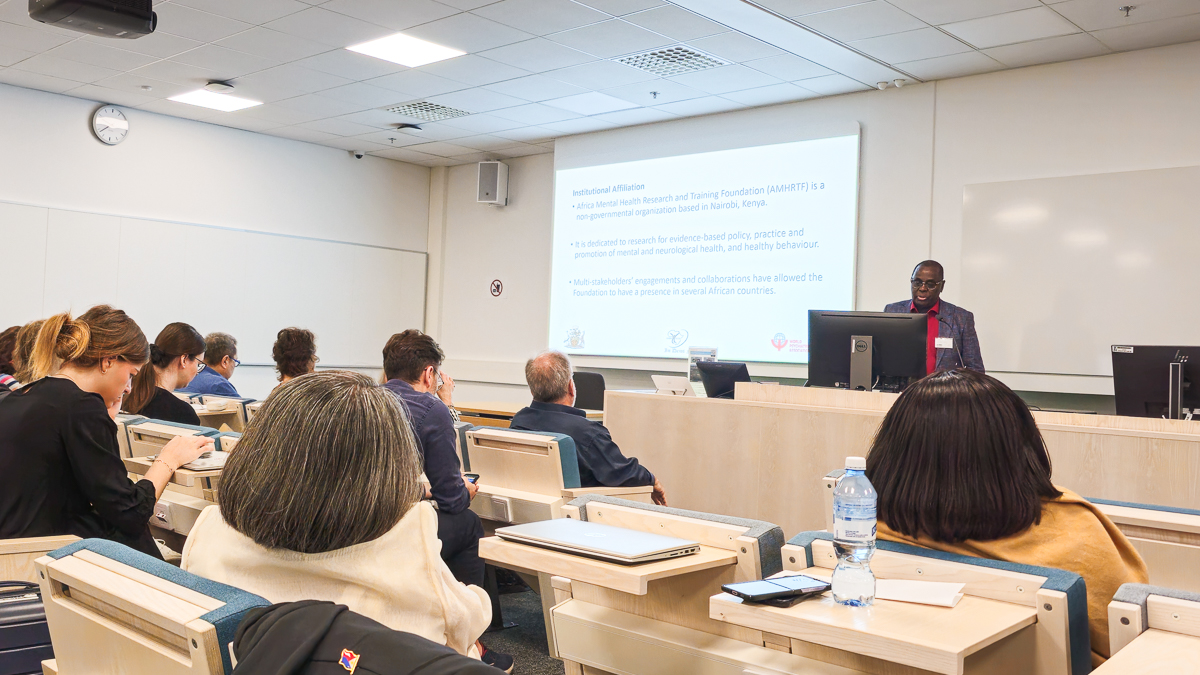 According to professor Ndetei, adolescent suicides in Kenya have increased by as much as 58 percent between 2008 and 2017.
According to professor Ndetei, adolescent suicides in Kenya have increased by as much as 58 percent between 2008 and 2017.
The war in Ukraine has had a great impact on the well-being of the country's youth. Visiting Professor for the Research Centre for Child Psychiatry Olga Osokina from the University of Donetsk spoke at the event about the project led by the Research Center, which examines the effects of war on the mental health of children and adolescent in Ukraine.
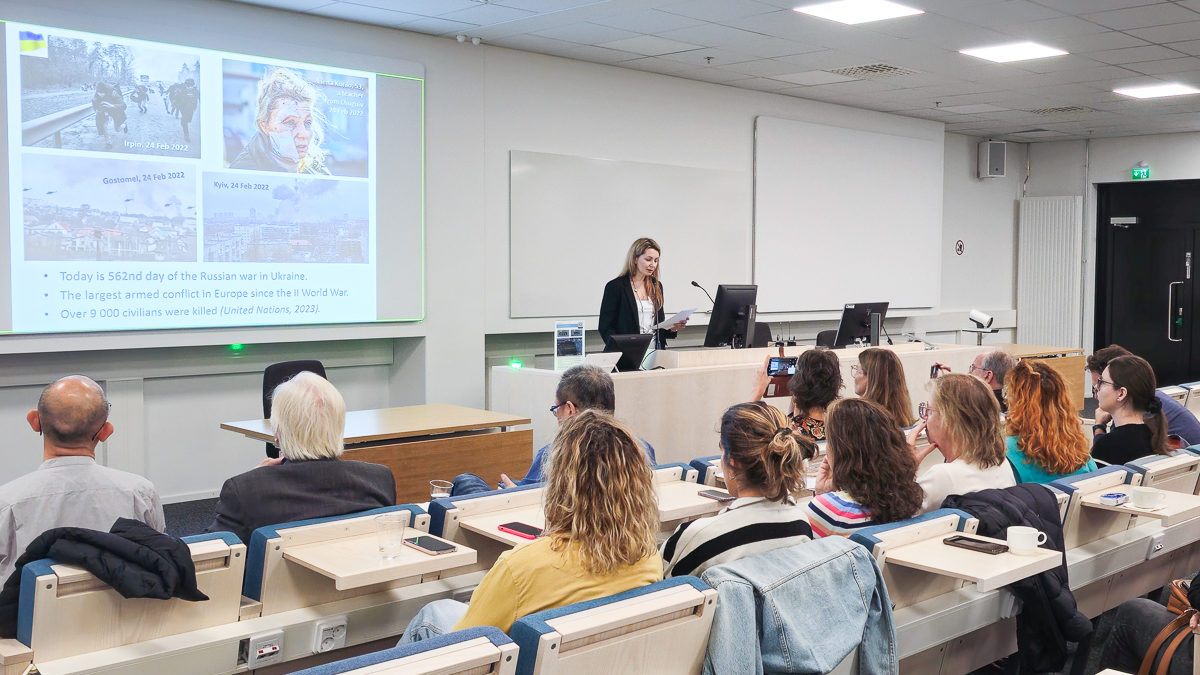 According to the preliminary results discussed by professor Osokina, around 15 percent of Ukrainian youth have had suicidal thoughts and more than half have symptoms of depression.
According to the preliminary results discussed by professor Osokina, around 15 percent of Ukrainian youth have had suicidal thoughts and more than half have symptoms of depression.
The environmental crisis is a significant threat to public health
The seminar also included two lectures on the effects of the environmental crisis on the well-being of children and adolescent. At the seminar, Gerasimos Kolaitis, professor of child psychiatry at the , National and Kapodistrian University of Athens, reviewed the effects of climate change and stated that, according to estimates, children born today will experience seven times more extreme weather conditions compared to the current situation.
According to Unicef, almost half of the world's 2.2 billion children are at high risk of experiencing various environmental crises during their lifetime.
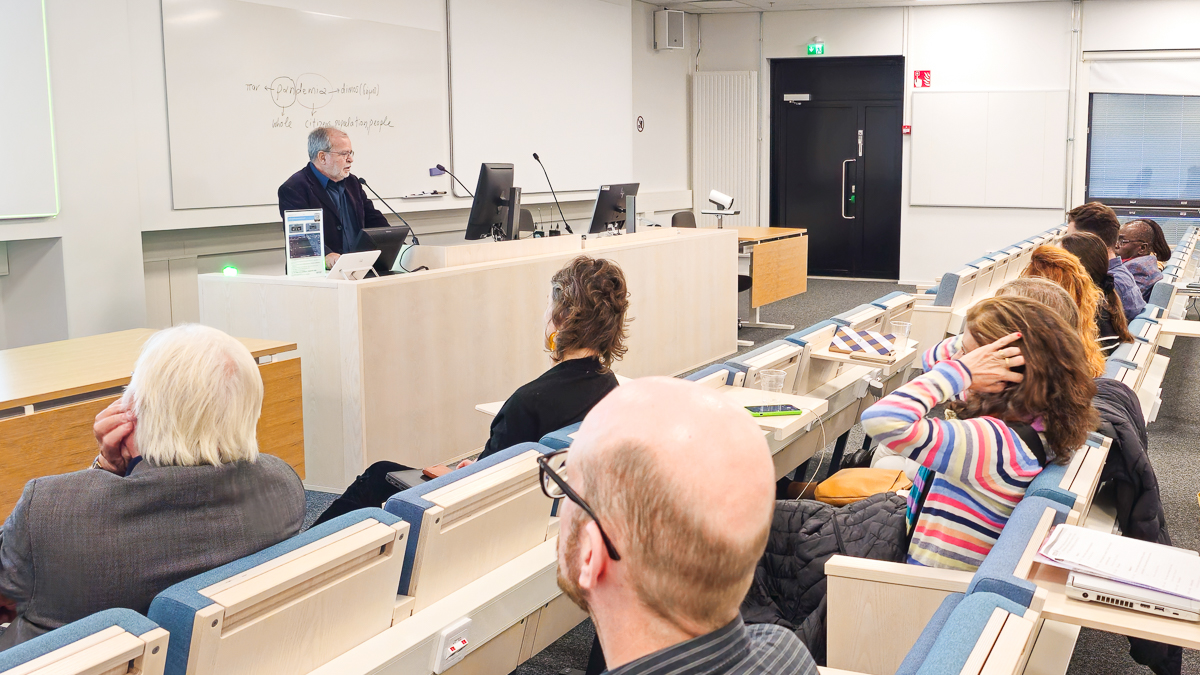 – According to the WHO, climate change is the public health challenge that threatens humanity the most, Kolaitis said.
– According to the WHO, climate change is the public health challenge that threatens humanity the most, Kolaitis said.
University of Helsinki adjunct professor, researcher Panu Pihkala spoke at the event about the environmental anxiety of Finnish youth.
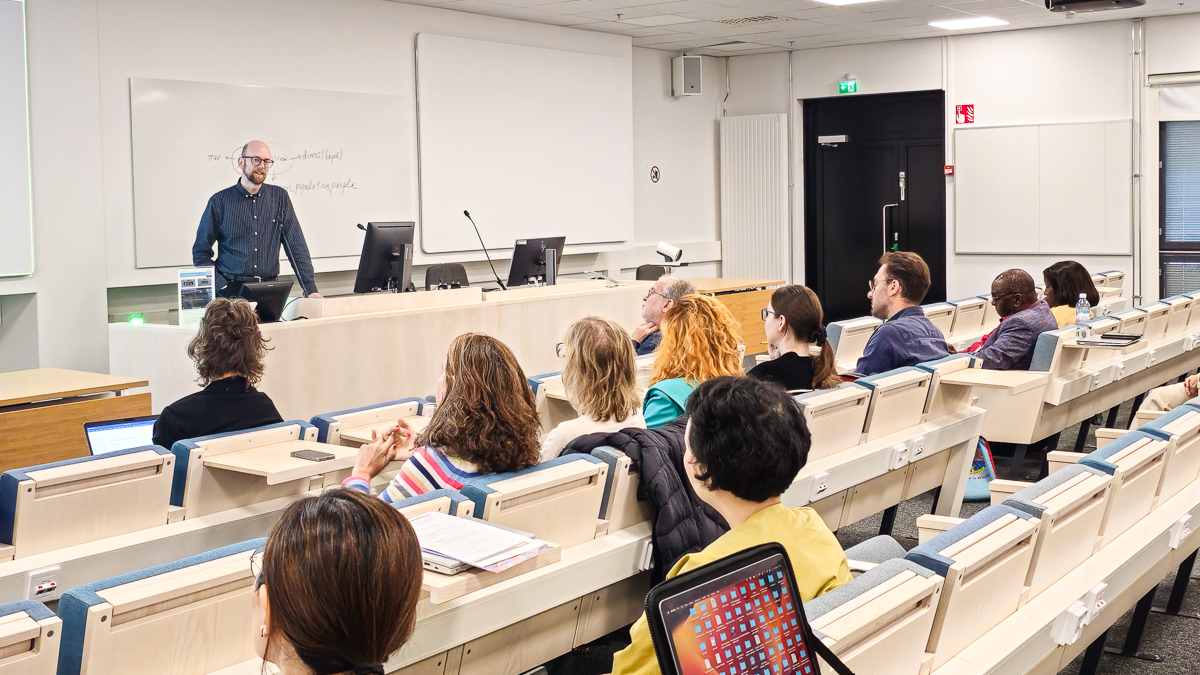 – More than half of Finnish young people believe that the decision-makers have betrayed them regarding climate change. 76 percent of the young people had experienced sadness over the loss of biodiversity, Pihkala told at the seminar.
– More than half of Finnish young people believe that the decision-makers have betrayed them regarding climate change. 76 percent of the young people had experienced sadness over the loss of biodiversity, Pihkala told at the seminar.
The seminar also had speeches from senior consultant Ong Say How from the Institute of Mental Health in Singapore, Argentinian professor Maria Beatriz Moyano, Philippine Center for Academic Health Sciences Research associate director Daisy Alberto, professor Marika Jalovaara from the University of Turku and from the director of the Research Centre for Child Psychiatry, professor Andre Sourander.
The seminar was organized as part of the GCAMHS research group's week-long visit to Turku. The group is made up of child and adolescent mental health experts in the following countries: Argentina, Azerbaijan, China, Ethiopia, Finland, France, Greece, Indonesia, Iran, Israel, Japan, Kenya, Latvia, Lithuania, Malaysia, Mongolia, Nepal, Norway Philippines, Saudi Arabia, Singapore, South Korea, Spain, Taiwan, Thailand, Uganda, Vietnam, Iceland, India, Sweden.
